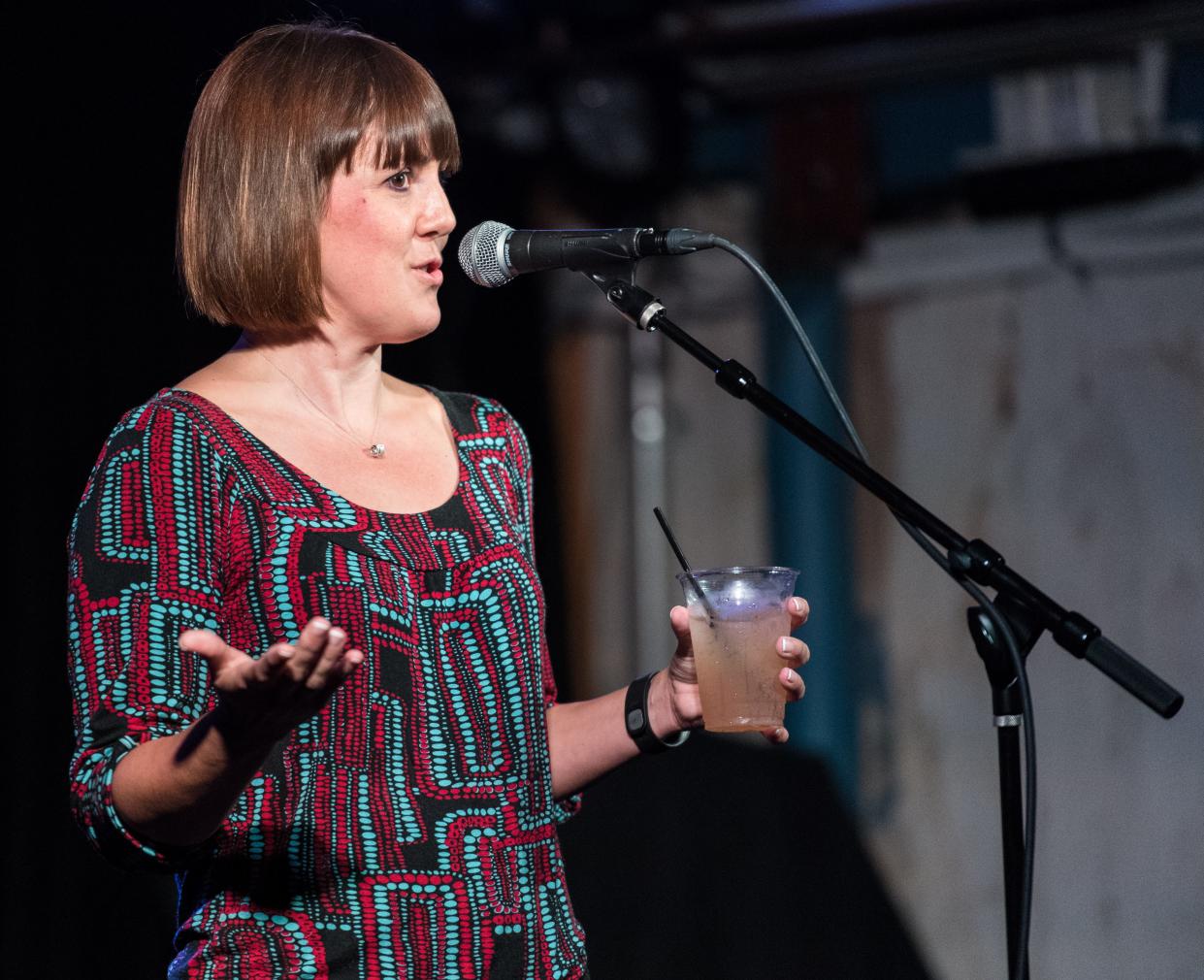Her calendar was open. She wasn't in the office. Why was the Arizona attorney general aide paid?

- Oops!Something went wrong.Please try again later.
Arizona Attorney General Kris Mayes announced in early July that her chief of staff would be leaving the office four weeks later, wishing her "all the best in her future endeavors.”
In the month that followed, that top aide, Amy Love, appeared to do little to no work while collecting a paycheck from Arizona taxpayers, public records obtained by The Arizona Republic show.
Love went to the office just once in four weeks, according to the records.
She sent just one email in that time, to another staffer, on July 9, the records show.
Many of the meetings on Love's schedule were canceled, and those that remained largely appear to be routine internal team meetings. It is unclear if Love actually attended those gatherings. At least one attendee at three public-facing events on Love's calendar told The Republic that Love was not actually there, or not involved.
Love would have been paid over $15,000, based on her annual salary of $200,000, in the time between when Mayes announced her resignation and her final day as an employee of the Attorney General's Office, despite a lack of evidence she did much work in that time.
Mayes, a Democrat who was elected last year, would not discuss Love's resignation or the appearance that she gave a former aide a taxpayer-funded handout on her way out the door.
"That is a personnel matter and I'm not at liberty to discuss it," Mayes told The Republic. "We wish Amy the best, and that's about all I can say about it."
Asked why she would agree to pay someone for what appeared to be a no-show job, Mayes said she had "about 5,000 other things that I can talk to you about that are far more important than that. Fentanyl. The water crisis in the state of Arizona, protecting consumers, and I'll leave it at that."
Love did not return multiple phone calls and text messages seeking comment.
The Republic reviewed Love's schedule from late June through Aug. 7, her last day, and records that show when she used an access card to enter the Attorney General Office's headquarters on Central Avenue between July 7 and Aug. 7.
The access records show just one date that Love was in the office: July 7, the Friday before her resignation was publicly announced. A log of emails Love sent between July 7 and Aug. 7 revealed just one outgoing message, with the subject of "CoS Open Office Hour." The message was sent on July 9 to Mayes' chief operating officer.
The documents were provided by Mayes' office in response to public records requests submitted in July and late September.
There is no indication on Love's calendars that she had time off after her resignation was announced. It's possible Love worked from home, but it is also unclear how often that would have occurred and that doesn't explain the single outgoing email.
An Attorney General's Office policy says employees must have written agreements with their supervisors to allow for remote work, but Mayes spokesperson Richie Taylor said Love had a verbal agreement that allowed her to telework.
Major issues: Arizona Attorney General Kris Mayes on election integrity and her office's main priority
Mayes created the chief of staff position when she took office in January, and she has not filled it since Love's departure. The previous attorney general designated his chief deputy to also serve as chief of staff, according to a 2019 organization chart.
Before joining Mayes' new administration, Love worked as outreach director for U.S. Sen. Mark Kelly, D-Ariz. According to her LinkedIn profile, Love had worked in communications for Maricopa County Superior Court, as a lobbyist for the Arizona Supreme Court, and as the legislative liaison for the Arizona Corporation Commission from 2009 to early 2011, when Mayes was a commissioner.
Love supported Mayes' campaign for attorney general, donating $2,000 to help her win, according to state campaign finance records.
A separate personnel matter has left a cloud over Mayes' administration, and the threat of possible legal repercussions. Former prosecutor Jennifer Wright filed notice she would seek $2 million in a defamation case against Mayes related to statements made to The Republic about Wright's departure from the office.
Cushy low- or no-show jobs are not unheard of in Arizona's political history, though they can raise questions of judgment and fair use of public dollars.
Stephanie Grisham was paid about two months' salary as a communications staffer for the Arizona House of Representatives, but reporting by the Arizona Capitol Times showed she actually was traveling the nation and working the transition for then-President-elect Donald Trump.
Another concern is whether paying a state employee for doing no work violates the gift clause of the Arizona Constitution. The clause, which has been a part of the constitution since it was enacted in 1912, prohibits government bodies from giving money to private companies or people without specific benefits to taxpayers.
"If the employee is not performing any official duties, that could conceivably raise gift clause issues," said Jon Riches, vice president for litigation and general counsel at the Goldwater Institute, which has brought multiple cases over the gift clause law.
'I want to send a message': Arizona attorney general says she may prosecute senior care facilities
Reach reporter Stacey Barchenger at stacey.barchenger@arizonarepublic.com or 480-416-5669.
This article originally appeared on Arizona Republic: Payments to top Arizona attorney general aide Amy Love under scrutiny

